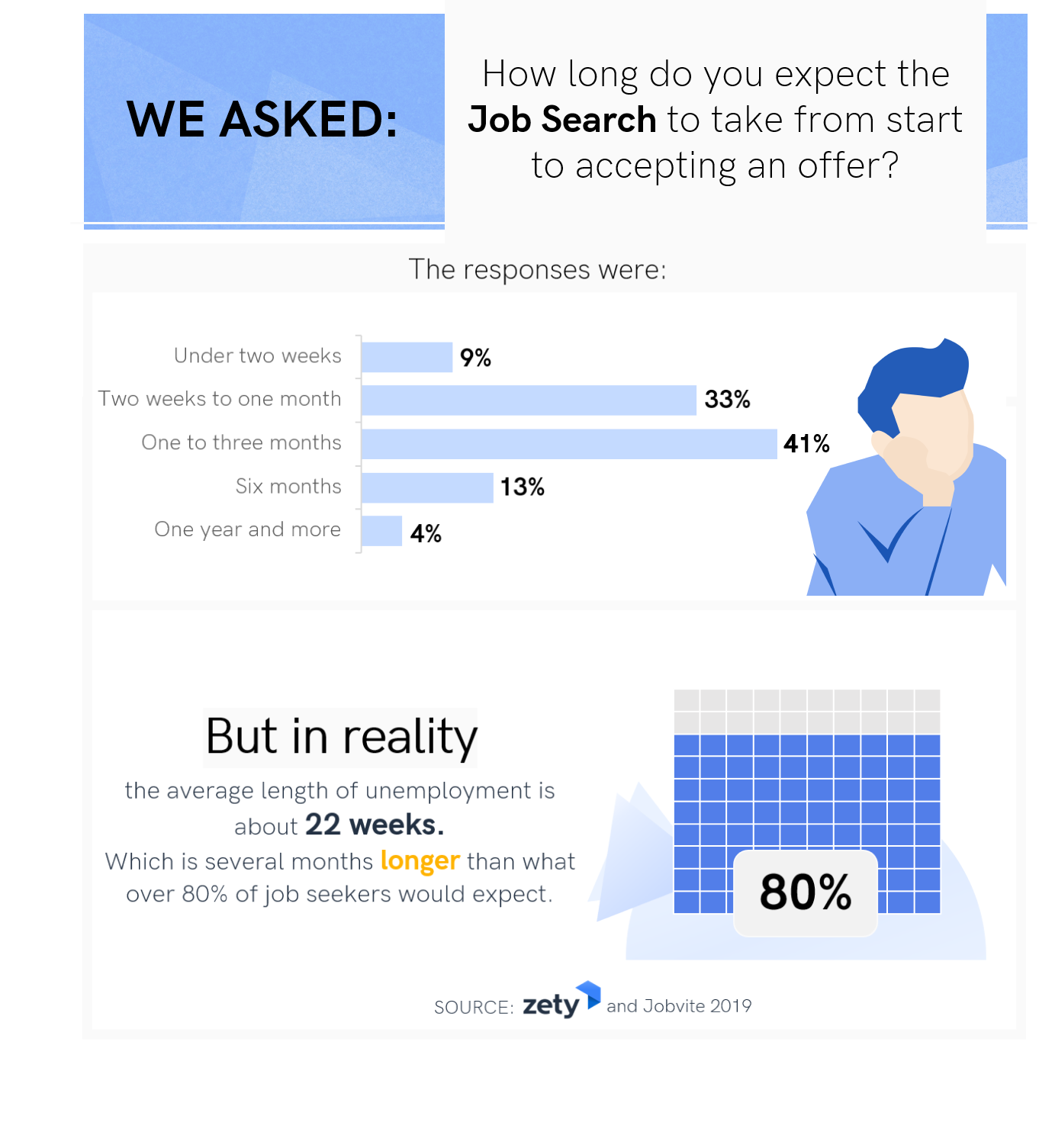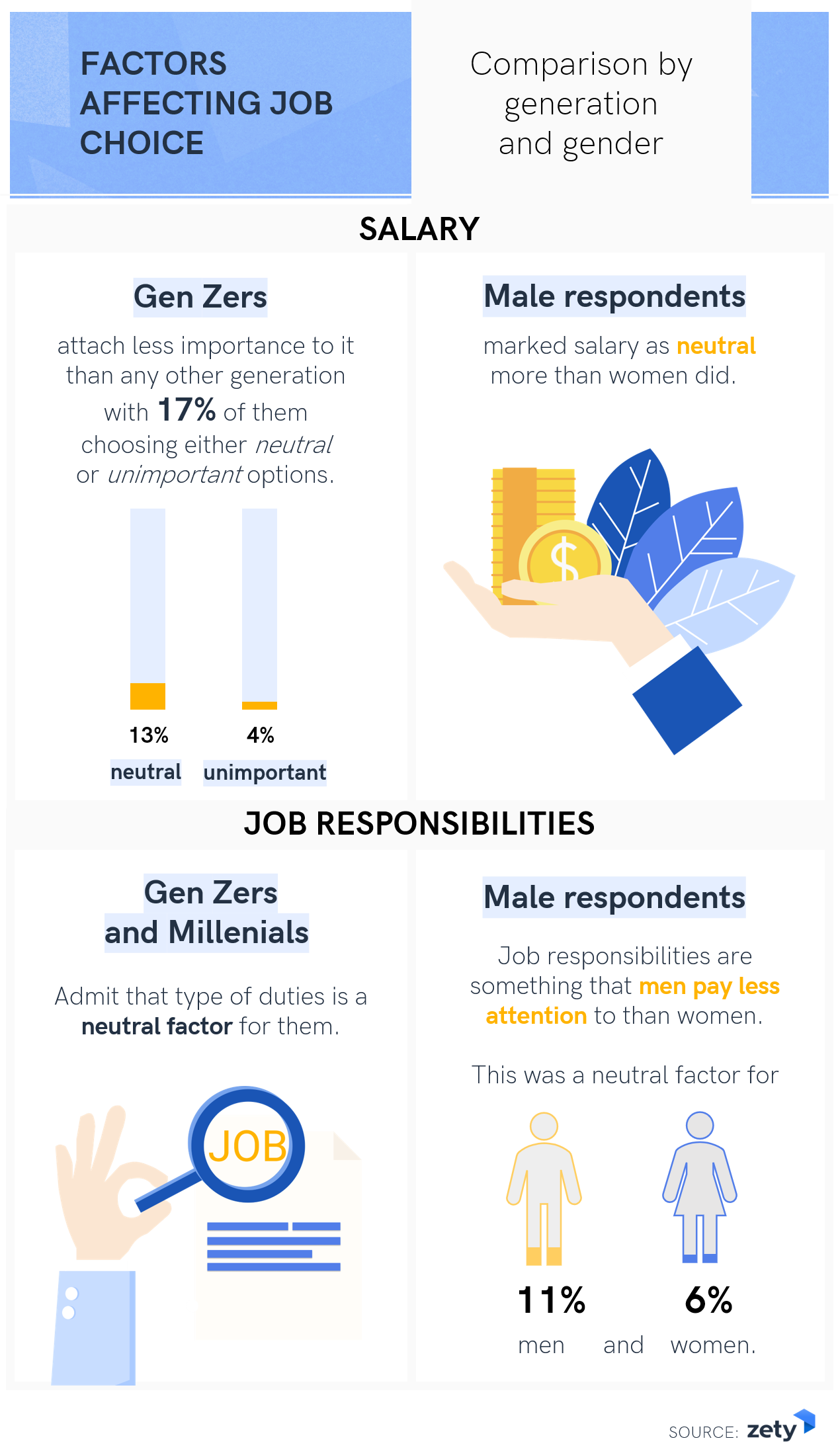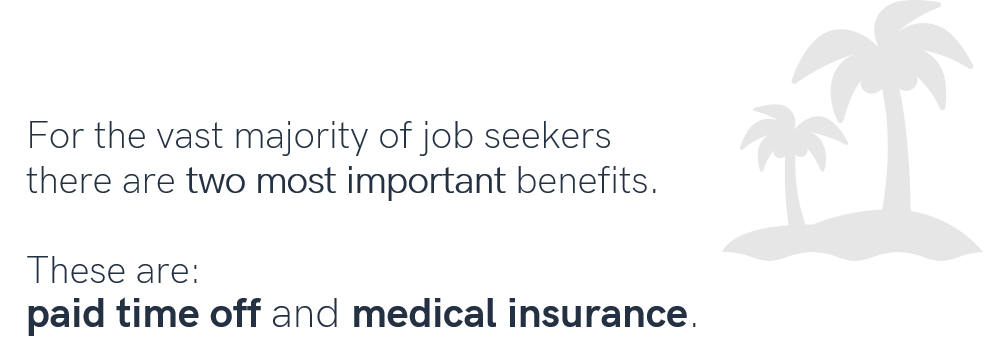
2023 HR Statistics: Job Search, Hiring, Recruiting & Interviews
The definitive list of human resource statistics and research for 2023. See data on resumes, job interviews as well as hiring and recruiting.

It’s the job seeker’s market now and candidates can afford to be picky about the company they will work for. Here’s what 1,000+ Americans expect from their potential employers.
With unemployment rates hitting all time lows, the tables have turned on employers.
It’s a job seekers market and they get to choose. One bad experience and it’s the hiring company who’ll get the “thank you, next” treatment.
So, what do the candidates expect of the potential employer?
We asked 1,010 Americans about their experiences and expectations for the recruitment process.
Here’s what they told us—
The most popular destinations for people to look for job offers are:
Respondents were allowed to pick multiple options, and the results show that company websites beat job boards by a miniscule margin. This came to us as a surprise as we expected job boards to be the number one pick by far.
And this is where the vast majority of respondents do background research on their prospective employer:
The results clearly show that the largest numbers of candidates visit company websites both when looking for job offers and researching their prospective employers.
The question is—
Where do the best candidates come from? Do they come in hordes via company websites and job boards?
Even though Jobvite’s Recruiting Funnel Benchmark Report reveals that 90% of applicants do come from job boards and career sites, another study from Jobvite shows that they’re the worst and least effective sources of quality candidates.
Recruiters admit that the best source for top talent comes from referrals, custom campaigns, and internal hires.

Here’s what the numbers look like according to the 2017 Jobvite’s report respondents:
Hire count
Note: The absolute numbers may be in favor of job boards and career site, but only if you don’t take the number of all applications sent through these channels. Let’s just say it’s over 8.3 million applications via job boards vs. about 85,000 via internal applications.
Here’s how the hiring effectiveness factor looks for all the above candidate sources (the higher the factor the more effective the source):
Effectiveness
Now—
The question is why so many direct applications are of such low quality?
Just like our own study, the 2018 Talent Board North American Candidate Experience Benchmark Research Report revealed that the vast majority of candidates (70%) independently research prospective employers, and the company’s website seems like a pretty obvious destination to get more info on the employer. Plus, the same report further indicated that number one information the candidates want to learn are the company values.
Since so few quality candidates come from direct applications, we’d venture to say the websites, in general, do a rather poor job communicating company values to the outside world.
This is definitely some food for thought before revamping a company website, especially if it's supposed to attract top talent.
What we learned is that on average people are willing to spend up to two hours preparing and submitting their application documents (118 minutes).
Here’s a look at a more detailed breakdown:
Men are prepared to spend 15 minutes more than women on making and submitting their job applications. The numbers are 125 and 110 minutes respectively.

Also—
The more educated the job seeker, the more time they’re ready to spend redying and submitting their application:
Now:
The numbers we arrived at seem to reflect all the time it takes for a candidate to write a resume, cover letter, submit these via the employer's HR system, and answer all the questions included in online questionnaires.

Studies show that up to 60% of candidates are likely to abandon the recruitment process halfway through if it turns out too long or complex, which is a total waste of talent. Plus, if data from Indeed is right, more and more employers are taking steps to reduce the time it takes to apply for a job using their online systems and keep it under 15 minutes.
Why?
It turns out that companies whose screening processes are too long (e.g. have more than 45 questions) can lose as many 89% of potential candidates. And—contrary to popular belief— longer application processes don’t seem to weed out unqualified candidates. They attract those desperate enough to complete the process who could be using generic templates en masse to apply to as many positions as possible (the so-called “spray and pray” approach.)
To sum up—
If respondents declare they’re willing to spend up to 2 hours preparing and submitting the job application they must be thinking beyond just filling in the online forms in the employer’s HR system.
It turns out that regardless of industry or age, the candidates’ have roughly the same expectations:

Candidates’ expectations as to the length of the entire job search.
What does it look like in real life?
According to recent data from the Bureau of Labor Statistics, the average length of unemployment is about 22 weeks, or five and a half months, which is at least several months longer than what over 80% of job seekers would expect.
That’s why we also wanted to find out—
The answers pointed at one universal trend that spans all generations, age groups, regions, and industries, namely—

The only outlier here is the IT industry, where less than half of the surveyed population shares this viewpoint. This suggests that recruiting for IT positions takes more time than for any other.
How does this look in real life?
The 2018 Recruiting Benchmark Report form Jobvite shows that the average time-to-hire in the US in 2018 was 38 days, i.e. five and a half weeks. This is pretty much twice as long as over half of the surveyed population would expect.
Also, studies confirm that recruitment processes for IT positions take longer than average. Jobvite’s own Recruiting Benchmark Report pegs this at 41 days, whereas according to a report by Workable, it takes 51 days to recruit a candidate for an IT function in the US and Canada.
We wanted to learn what motivates candidates to opt for one job over the other.
That’s why we prepared a list of 15 items that respondents were asked to rate on a five-point scale. For the sake of convenience, we aggregated the responses into three categories: important, neutral, and unimportant.
Here’s what the answers look like:
Factor | Unimportant | Neutral | Important |
Salary | 2.18% | 5.45% | 92.38% |
Job responsibilities and duties | 2.08% | 8.71% | 89.21% |
Location | 2.77% | 10.20% | 87.03% |
Career growth opportunities | 7.62% | 19.90% | 72.48% |
Company reputation | 9.21% | 21.39% | 69.41% |
Flexible schedule / Remote work | 9.90% | 21.09% | 69.01% |
Professional training and development opportunities | 11.19% | 20.69% | 68.12% |
Company culture | 9.80% | 23.76% | 66.44% |
Industry | 14.75% | 27.03% | 58.22% |
The person I would be reporting to | 15.54% | 26.44% | 58.02% |
Diversity and inclusion in the workplace | 25.94% | 24.85% | 49.21% |
Guidance with a mentor | 32.38% | 30.89% | 36.73% |
Brand awareness | 33.17% | 32.67% | 34.16% |
Referral of a friend | 36.83% | 30.99% | 32.18% |
Size of the company | 41.58% | 32.87% | 25.54% |

On closer inspection, it turns out that:
Even though the salary is universally the most important factor for everyone, Gen Zers seem to attach less importance to it than any other generation with 17% of them choosing either neutral or unimportant options (13% and 4% respectively.) Also, male respondents marked salary as neutral more than women did—the numbers are 7% for men and 5% for women.
Job responsibilities are something that men pay less attention to than women. Among male respondents, 11% said this was a neutral factor while only 6% of the women shared this sentiment. Also, there is a visible generation gap—the young pay less attention to the type of duties with 12% of Gen Zers and 10% of Millennials admitting it’s a neutral factor. The numbers for Gen Xers and Baby Boomers who share this view are 3% and 7% respectively.
Location was indicated as the third most important factor. So, we aggregated the unimportant and neutral responses, and this is what the numbers revealed: male respondents care less about the location than women (16% vs. 10%); Gen Zers are most not to mind the location (20%.)
Looking at the other end of the spectrum—
The last but one position—and this is quite surprising—is taken by a referral from a friend with only a little more than 30% of respondents regarding this as an important factor.
Here’s what a more detailed breakdown revealed:
The distribution of answers about the company size was almost identical for everyone regardless of gender or age. The conclusion is that all job seekers will unanimously disregard the information on whether a company has a team of 10 or 10,000 experts.
As to recommendations from friends—
Men are less likely to ignore friendly advice than women—33% of male respondents think referral from a friend is unimportant. Among female respondents over 40% would give a pass to friendly advice. What about different age groups? About 20% of Gen Zers consider what their friends say important while for Baby Boomers the number is 40%.
Finally—
While it’s not that much of a surprise that salary tops the list, it’s quite interesting to see brand awareness so low. The only ones who seem to somewhat care about this aspect are Gen Zers (18–24) 42% of whom consider this important.
For this purpose, we compiled a list of 12 most popular benefits and asked respondents to rate them.
This is what they said:
Benefit | Unimportant | Neutral | Important |
Vacation / Paid time off | 4.65% | 10.30% | 85.05% |
Medical insurance | 5.25% | 9.80% | 84.95% |
401k or retirement plan | 7.72% | 13.56% | 78.71% |
Bonus incentives | 10.79% | 22.48% | 66.73% |
Professional training and development opportunities | 13.37% | 21.19% | 65.45% |
Paid maternity / Paternity leave | 35.74% | 18.12% | 46.14% |
Stock options / Equity | 27.03% | 30.59% | 42.38% |
Tuition assistance or reimbursement | 37.62% | 25.35% | 37.03% |
Student loan repayments | 41.78% | 23.76% | 34.46% |
Wellness programs / Gym memberships | 38.81% | 28.61% | 32.57% |
Company-sponsored events and activities | 39.60% | 28.61% | 31.78% |
Free food and drinks | 44.36% | 29.60% | 26.04% |

So, paid time off, health and security.
A closer look at the results shows that:
Everyone wants to have paid time off but… who needs it the most? The answers revealed that women want it more than men (89% vs. 82%), and Gen Xers want it more than any other age group with 90% picking this option.
Medical insurance ranked second, and it looked like it’s equally important for everyone. Among different age groups, there were two that stood out. Gen Xers seem to pay the most attention to this perk with almost 90% of them regarding this as important. Conversely, the youngest generation, i.e. Gen Z, was the most likely to consider this unimportant.
Retirement plans appealed the most to Gen Xers with 82% of them marking this option as important, and the least to the youngest generation with just a little more than 70% considering this important and almost 13% unimportant. This obviously makes perfect sense: the closer you come to retiring, the more important it becomes for you.
As to the least important bonuses—
Now—
Even though free food is the least important bonus, opinions vary among the generations, with Gen Zers (18–24) being the most interested in having access to free grub. To Gen Xers, free food is the least important (15%.)
The enthusiasm for company-sponsored events and activities wanes with time, which is reflected by the numbers of those who find this important: Gen Z— 35%, Gen X—26%.
Wellness programs and gym memberships become less and less important as jobseekers get older and older. Over 30% of Gen Zers regard this as unimportant, and so do 39% of Millennials, 44% of Gen Xers, and 45% of Baby Boomers.

Verdict? The more mature the job seeker, the stronger the tendency to value health and security while “fun” perks lose significance.
Our final question was to pinpoint the most important factors that influence the final choice of an employer.
Respondents could choose one of the four options:

The second place belonged to the recruiter—with one notable exception. Generation Xers pointed at the speed at which they receive a job offer as the second most important factor. Also, it was clearly visible that to Gen Zers the recruiters themselves are far more important than for any other age group since as many as 36% signed off on this.
Technology won’t impress anyone. It’s all about the process, people, and speed.
Job seekers’ impressions of the recruitment process can influence the way a given employer is perceived. Especially since studies reveal that up to 60% of job seekers consider their job-seeking experience poor, and 72% will complain about it to others. The findings from our study reveal that:
Methodology and Limitations
For this study, we collected answers from 1,010 respondents via Amazon's Mechanical Turk. Respondents consisted of 52% males and 48% females. Our sample's average age was 34 with a standard deviation of 11.
This self-report study investigated job seekers’ expectations and experiences regarding their job search. Respondents were asked 13 questions, most of which were scale-based or multiple choice. As experience is subjective, we understand that some participants and their answers might be affected by recency, attribution, exaggeration, self-selection, non-response or voluntary response bias. However, given the gender and age make up of our large sample, as well as the fact that the official labor force participation rate in July 2019 was 63%, the study can be generalized to the entire population. What is more, a review of literature and relevant studies suggests that results obtained in the survey corroborate hitherto results, and add an extra layer of data by comparing subjective experience against third-party data on the reality of the job search.
Sources
https://www.jobvite.com/wp-content/uploads/2021/09/Jobvite-RecruiterNation-Report-WEB-2.pdf
http://blog.indeed.com/2016/08/15/fastest-job-application-process/
https://newtonsoftware.com/blog/2016/10/06/ideal-length-online-job-application/
https://www.jobvite.com/wp-content/uploads/2019/03/2019-Recruiting-Benchmark-Report.pdf
https://resources.workable.com/tutorial/time-to-hire-industry
https://workplacetrends.com/wp-content/uploads/2017/07/The-Candidate-Experience-Final.pdf
Zety is your trusted resource on all things employment. Choose from our professional resume templates and learn how to write a resume that lands you interviews. Don’t forget to pair it with a cover letter, and get ready to impress the hiring managers with our job interview tips.
The definitive list of human resource statistics and research for 2023. See data on resumes, job interviews as well as hiring and recruiting.
Learn how to use your LinkedIn profile to get job offers from the best companies. Boost your career with these easy LinkedIn profile tips and tricks. Read more!
About 58% job seekers report their job search lasted 2 months or less. About 13% of candidates spend 7 months or more (even years) looking for a job. For employers, positions open for a few months should signal that the recruiting process might be faulty.

